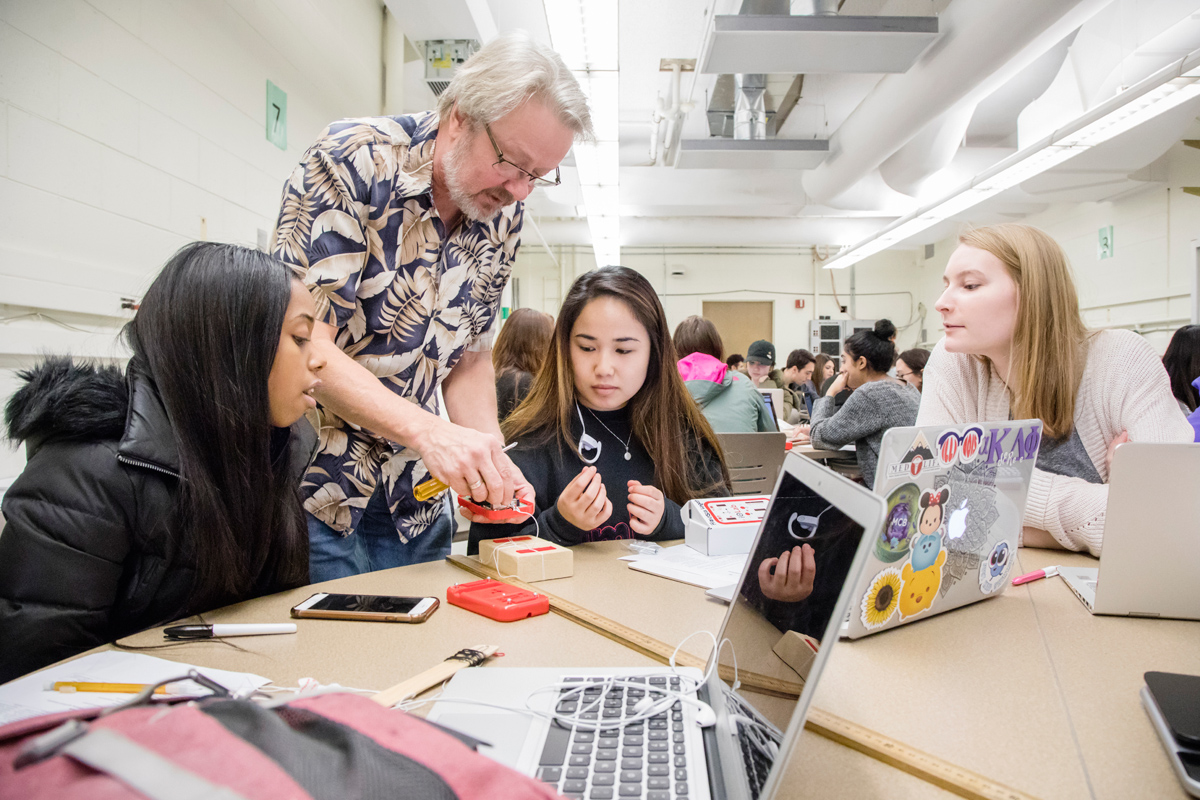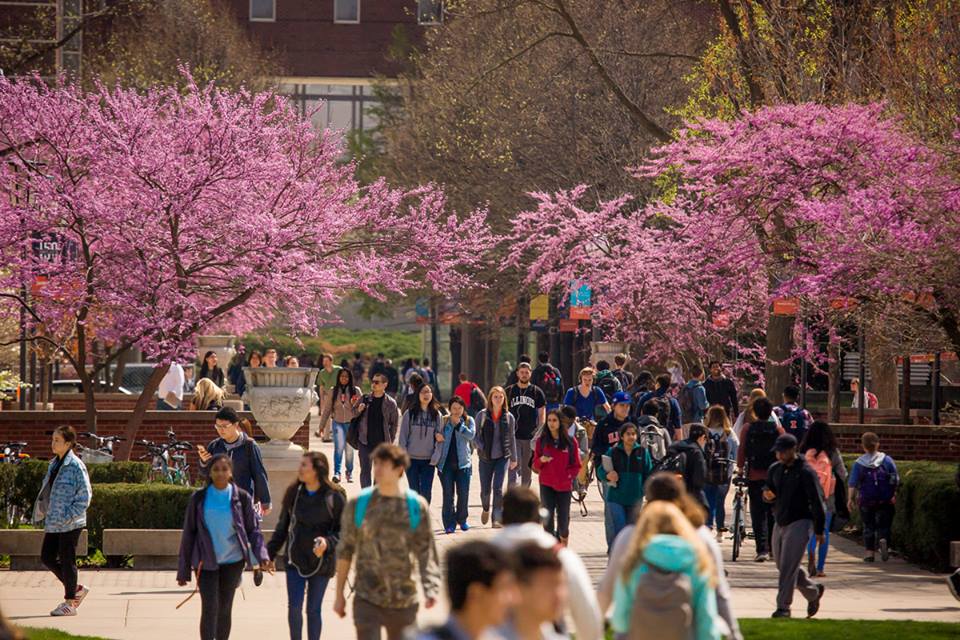Physics
Physics Concentration in LAS Science and Letters: The physics concentration in the LAS Science and Letters curriculum provides a solid training in physics but also allows space for electives which can be selected to create a physics-based educational program in a wide variety of interdisciplinary fields. Specialized Physics: The LAS Specialized Physics curriculum incorporates our rigorous Science and Letters curriculum, rich in fundamental physics, mathematics, and laboratory technique, with a classical liberal arts education that includes a heavy concentration of physics courses. Physics Teaching Concentration: In addition to a firm foundation in physics, mathematics, and basic laboratory techniques, the Physics Teaching Concentration curriculum incorporates training in modern STEM-subject teaching pedagogies. If you plan to pursue a career in teaching physics, your completion of this concentration will fulfill state certification requirements to teach both physics and general science.
Two programs of study are offered through Physics in the College of Liberal Arts and Sciences.
Within the Sciences and Letters Curriculum, two concentrations are offered:
|
Physics
|
Offers a flexible program for students who plan to pursue technical or professional careers in areas requiring a sound grounding in physical science and mathematics. Students can use the concentration to prepare for employment immediately upon graduation or for continuing on to graduate study in a wide variety of fields. It is an ideal program for those interested in interdisciplinary study such as atmospheric sciences, biophysics, geophysics, pre-med, pre-law, or any other discipline requiring a strong physics background. |
|
Physics Teaching
|
Prepares students for teaching physics at the high school level. Students in this program must apply and be admitted to the Secondary Education minor during the junior year. The program can take up to five year to finish. Upon successful completion, a student will have a Science and Letters Physics degree as well as teaching certification for physics and general science. |
For more information on Degree Requirements, visit http://catalog.illinois.edu/undergraduate/las/physics-bslas/
Prepares students for graduate study in physics or a closely allied field, as well as those who desire to work in industry. For ore information on the Degree Requirements, visit http://catalog.illinois.edu/undergraduate/las/physics-bs/
- MATH 221—Calculus I
- MATH 231—Calculus II
- PHYS 211—Univ Physics (Mechanics)
- PHYS 212—Univ Physics (Elec & Mag)
Students should consult with an academic advisor regarding course selection prior to the advanced registration period.
Physics can lead to a variety of future possibilities in the areas of education, scientific research, and more.
- Analytical skills
- Communication
- Design and conduct experiments
- Define research problems
- Design equipment
- Develop & write research proposals
- Develop research models
- Draw meaningful conclusions
- Establish experimental designs
- Establish hypotheses
- Evaluate ideas
- Gather/analyze data
- Identify/classify materials
- Inform, explain, instruct
- Knowledge of math, science, and engineering
- Logic and reasoning skills
- Maintain records
- Mathematical modeling
- Measure distances/relationships
- Observe data
- Perform calculations
- Prepare technical reports
- Review scientific literature
- See relationships among factors
- Summarize research findings
- Teamwork
- Use instruments
- Utilize math formulas
- Acoustical Physicist
- Aerodynamist
- Automotive Engineer
- Astrophysicist
- Application Engineer
- Biophysicist Engineer
- Computer System Engineer
- Environmental Analyst
- Environmental Specialist
- Forensic Scientist
- Fiber Optic Engineer
- Fluid Physicist
- Geodesist
- Geophysicist
- Health Physicist
- Lab Technician
- Materials Scientist
- Medical Physicist
- Nuclear Physicist
- Oceanographer
- Operations Analyst
- Particle Accelerator
- Project Engineer
- Physicist
- Physiognomist
- Plasma Physicist
- Process Engineer
- Quality Engineer
- Radiological Laboratory Director
- Research Assistant
- Research Physicist
- Satellite Data Analyst
- Seismologist
- Solid Earth Physicist
- Stratigrapher
- Systems Engineer
- Technical Analyst
- Technical Consultant
Some careers may require education beyond an undergraduate degree.
- Participating in undergraduate research
- Applying for a study abroad experience
- Utilizing resources of The Career Center
- Joining a Registered Student Organization (RSO) related to this major, such as:
- Society for Women in Physics: promotes networking and support for women in physics.
- Society of Physics Students: Illinois Chapter of the national organization whose members share an interest in physics.
There are several professional organizations dedicated to Physics. Their websites might be able to provide a glimpse in the world of Physics. These organizations include American Assocation of Physics Teachers, American Institute of Physics, and American Physical Society.


